War crimes in Africa of Germany? The higher regional court of Stuttgart sentenced two Rwandans for crimes committed in Eastern Congo. In December, if the process is reopened.
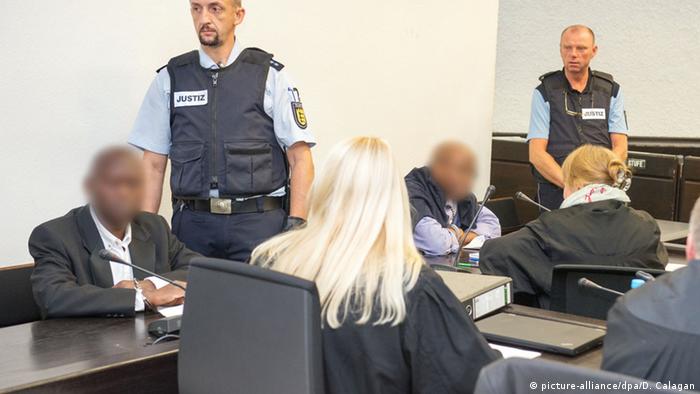
The two defendants sitting at the 28.09.2015 in the courtroom of the higher regional court of Stuttgart
It was a war criminal-process of superlatives: The higher regional court of Stuttgart held 320 Times in over four years. Were accused of two Rwandan men to have passed over the years, a rebel group in Eastern Congo, while they were in Germany unmolested a normal life. In 2015, the two men were convicted after a mammoth trial for aid to war crimes at 13 or eight years in prison. However, whether it remains in the case of these penalties, is now open again. On Wednesday, it was negotiated at the Federal court in Karlsruhe, about whether or not the process needs to be re-rolled.
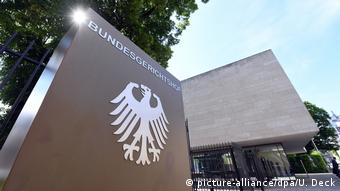
There is also a judgment on war crimes in all over the world: the Federal court of justice in Karlsruhe, Germany
The Federal Prosecutor’s office called in the trial, the long-time President of the FDLR (“democratic forces for the liberation of Rwanda”) as the perpetrators, and to condemn not only because of aid. The militants of the organization were killed in 2009 in attacks on several villages, numerous civilians. The 1963-born main defendant and his 57-year-old Deputy lives for a long time in Germany, and have led the FDLR as officials and representatives from the distance. The Stuttgart court had sentenced the men in 2015, as the ringleader in a terrorist Association, but not so powerful that the atrocities could have been prevented. The defense calls for the setting or the updating of the procedure. 20. December trying to decide, the judges in Karlsruhe, how to go on.
World criminal law: So that there are no law-free zones more
But why the German justice system takes care of atrocities in Eastern Congo? Since 2002, German investigators are able to track in accordance with the principle of universal jurisdiction war crimes abroad. The President and the First Vice-President of the FDLR are Rwandans, but they are living since the 1980s in Germany. At the end of 2009, the attorney General can both take. The indictment against the men is the first according to the new international criminal code. In it, you are made for 26 crimes against humanity and 39 war crimes. Because the men live in Germany, but anyway, German courts have jurisdiction.
Robert Heinsch, Professor of international humanitarian law at the Ruhr-University of Bochum, considers it essential that German courts, the new world use the principle of law. In an interview with DW, he says: “in Particular, the four core crimes of genocide, crimes against humanity, war crimes and Aggression, which are so vital for the global, that one can not be left up to the individual state, because these crimes basically tackle each other.”
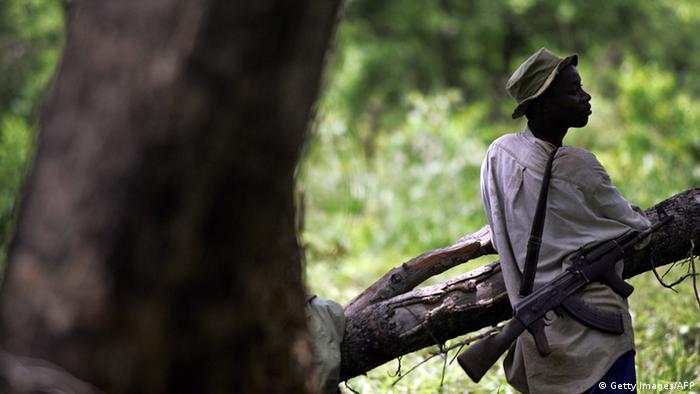
War crimes by SMS: Came the commands for the FDLR militia in Eastern Congo by two Rwandan nationals, the gifts from Germany commands?
In the case of the accused militia leaders, this is obvious: The FDLR fighters moved in the years 2008 and 2009 fire dismissal through villages in Eastern Congo. It ran of the people, they were beaten, shot or dismembered. Among the total of 174 civilian deaths, many women and children. Background of the genocide in neighbouring Rwanda in 1994. In the civil war, many Hutus fled to the democratic Republic of the Congo. There, she reasons, the FDLR, to strip to the East of the Congo, the government in Rwanda.
“All of the processing of the crime serves, serves to the Victims”
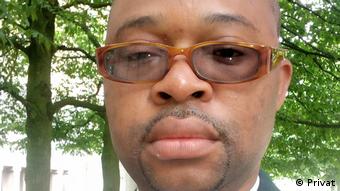
Sylvain Lumu looks at the process in Germany.
For Sylvain Lumu, Executive Director of the human rights organisation “Ligue des électeurs”, based in Kinshasa, is the process in spite of its length, a key component in the past. “Everything that serves for the investigation of the crimes, also serves the Victims,” says the head of the human rights organization in the Democratic Republic of the Congo, in an interview with DW. Criticism of why the procedure does not take place in the vicinity of the victim, he can understand, weighted things differently. “I don’t believe that processes in this Dimension would be in the Congo or in Rwanda,” said Lumu.
The evidence from Germany must be very difficult, or sometimes impossible, as the judges of the court of appeal gave Stuttgart a multiple-Protocol, the managing Director of the Congolese people may believe rights organization immediately. Doubts as to the German Judge, he, nevertheless, has not. “If the judge had not had sufficient evidence, then there would have been no condemnation.”
Germany’s justice ill-prepared
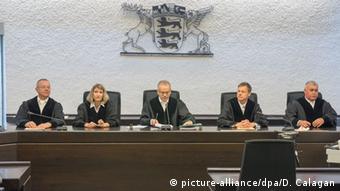
The higher regional court of Stuttgart at the time of sentencing in 2015
However, the process is now in an extension. And long it already is. In the case of the Stuttgarter process, the judge acts of violence had to explain that happened thousands of miles away. Has been reviewed according to the German code of criminal procedure, which brought high hurdles of proof. Witnesses were flown to Stuttgart and back again, traumatised victims were interviewed turn to the part of the Video, if this was at all possible. Statements and documents had to be translated. At the time of sentencing in September 2015, the presiding judge Jürgen Hettich spoke of a “Herculean task” to barely cope. And he added: “So it goes”.
Professor Robert Heinsch has understanding for the judge, pointing out that the effective prosecution of war crimes needs the creation of a corresponding infrastructure. “If you had no experience, as you hear now, witnesses from an African country, how to deal with Victims, not the German language, where you need a Translator, where you need to determine the help of Congolese and Rwandan authorities, then it is of course difficult when one must establish from now on.”
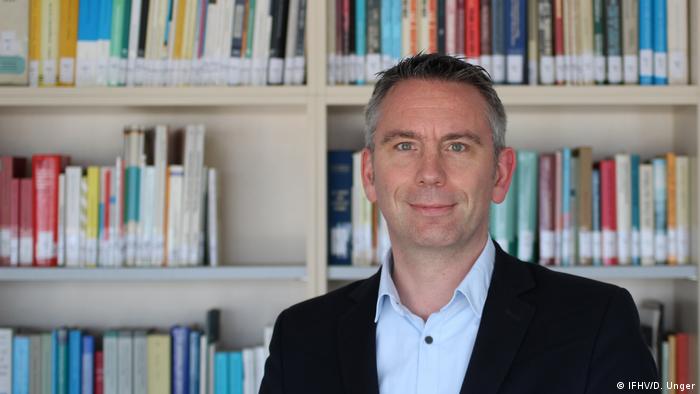
Professor Robert Heinsch from the Institute for international humanitarian law at the Ruhr-University of Bochum
Establishment of competence centers
The International criminal court in The Hague or at the Yugoslavia Tribunal, hundreds of process companion, legal experts and Translators were busy. To build a long-term Expertise that was crucial. A German higher regional court could not hold this capacity for occasional mammoth processes, don’t be surprised him. A bundling of competencies at a few of the dishes that were prepared for such special cases, could therefore be the correct answer to the Rwanda trial in Stuttgart.
In the Netherlands and in Spain were formed in each of the courts to special war crimes departments. And also the Federal have advocacy built in Karlsruhe, a Task Force for international war crimes. Heinsch also called for patience: In comparison to a human life, the international international criminal law has become just “of full age”. “It still needs to collect a lot of life experience”. The next opportunity will at the 20. December in Karlsruhe, Germany. The Federal court of justice confirmed the previous judgment, it is appealable. The judges may encounter a few bugs that would need to be rolled, the method of at least partially new.